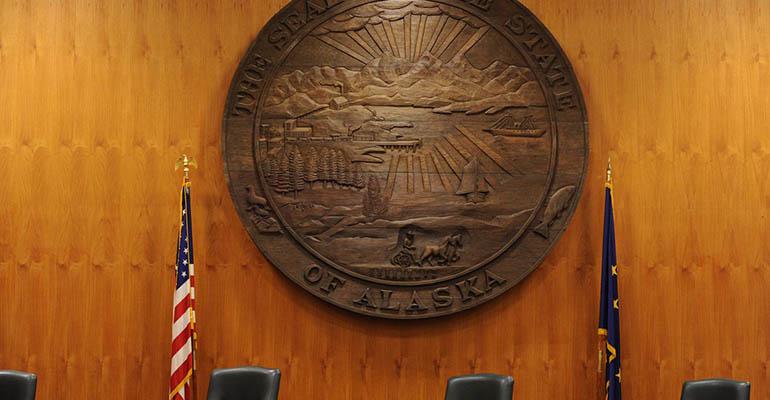Section 34.40.110(k) of the Alaska Trust Act purports to grant Alaska courts exclusive jurisdiction over fraudulent transfer actions in connection with the transfer of property to an Alaska self-settled spendthrift trust. However, on March 2, 2018, the Alaska Supreme Court ruled in Toni 1 Trust v. Wacker, 2018 WL 1125033, that such provision is invalid and that the Alaska legislature can’t “... prevent other state and federal courts from exercising subject matter jurisdiction over fraudulent transfer actions against such trusts....”
At its core, Toni 1 Trust v. Wacker involved a 2007 Montana state court lawsuit brought by Donald Tangwall against William and Barbara Wacker, a successful counterclaim by the Wackers against Donald, his wife and his mother-in-law and a transfer by Donald’s wife and mother-in-law, during the pendency of the counterclaim, of Montana real estate to an Alaska self-settled spendthrift trust called the “Toni 1 Trust,” which was later found in a Montana state court proceeding to be a fraudulent transfer under Montana law.
Donald, as trustee of the Toni 1 Trust, sought relief in Alaska state court, ultimately landing before the Alaska Supreme Court. The crux of his argument was that AS Section 34.40.110(k) grants the Alaska courts exclusive jurisdiction over any fraudulent transfer action against the Toni 1 Trust, that all judgments against the Toni 1 Trust from other jurisdictions were, therefore, void and that no future actions could be maintained against the Toni 1 Trust because the statute of limitations had, by then, run out.
Court’s Decision
The Alaska Supreme Court based its decision on the U.S. Supreme Court’s 1914 ruling in Tenn. Coal, Iron, & R.R. Co. v. George, 233 U.S. 354. In that case, an employee sued his employer in a Georgia court, relying on an Alabama statutory cause of action. The employer countered that Alabama state courts retained exclusive jurisdiction over the suit under the Alabama Code and that the Full Faith and Credit Clause of the U.S. Constitution compelled Georgia courts to respect Alabama’s assertion of exclusive jurisdiction. The Supreme Court found, however, that “Full Faith and Credit” doesn’t require states to go quite so far and that “... jurisdiction is to be determined by the law of the court’s creation, and cannot be defeated by the extraterritorial operation of a statute of another state, even though it created the right of action.”
Fraudent Transfers Prohibited
As of the writing of this article, 16 states have enacted self-settled spendthrift trust (sometimes called “asset protection trust”) legislation, and 34 states haven’t (yet) enacted self-settled spendthrift trust legislation. Thus, cases may, and do, arise wherein a conflicts of law question exists concerning the ability of a self-settled spendthrift trust to protect assets from the claims of the settlor’s creditors. Toni 1 Trust v. Wacker, however, isn’t one of those cases. This is because the law of every state provides that the fraudulent transfer of property, whether outright to a self-settled spendthrift trust, or indeed to any trust, is ineffective. This is also the case in Alaska, where AS Section 34.40.110(b) provides that:
“If a trust contains a transfer restriction allowed under (a) of this section [relating to self-settled spendthrift trusts], the transfer restriction prevents a creditor existing when the trust is created or a person who subsequently becomes a creditor from satisfying a claim out of the beneficiary’s interest in the trust, unless the creditor is a creditor of the settlor and ... the settlor’s transfer of property in trust was made with the intent to defraud that creditor….”
While there may be differences in the fraudulent transfer law of Alaska relative to that of other states, a fraudulent transfer of property to an Alaska self-settled spendthrift trust will still be found to be ineffective, and it would seem to be beyond question that the transfer of property to the Toni 1 Trust was an obvious fraudulent transfer because Donald’s wife and mother-in-law transferred their real estate to the Toni 1 Trust during the pendency of the Wackers’ counterclaim against them.





